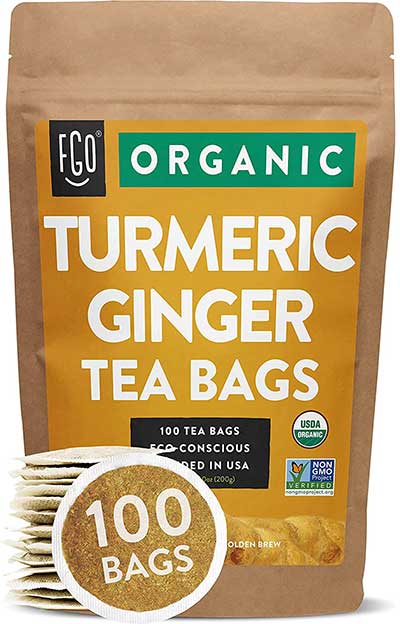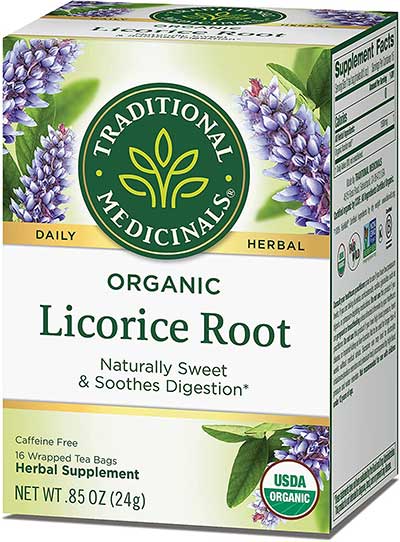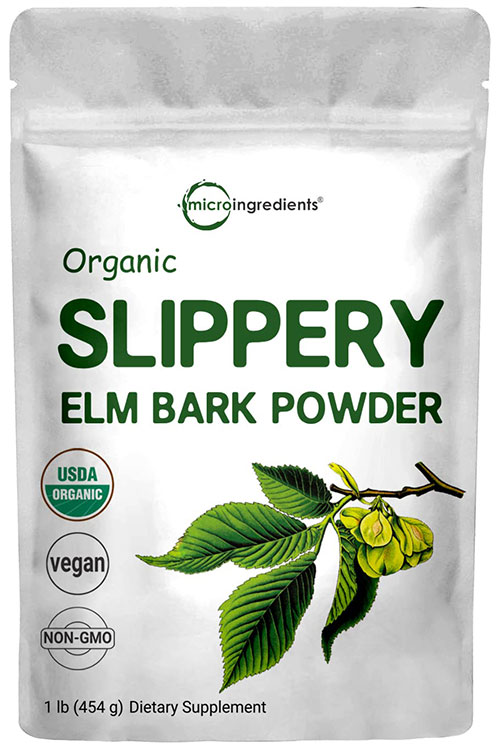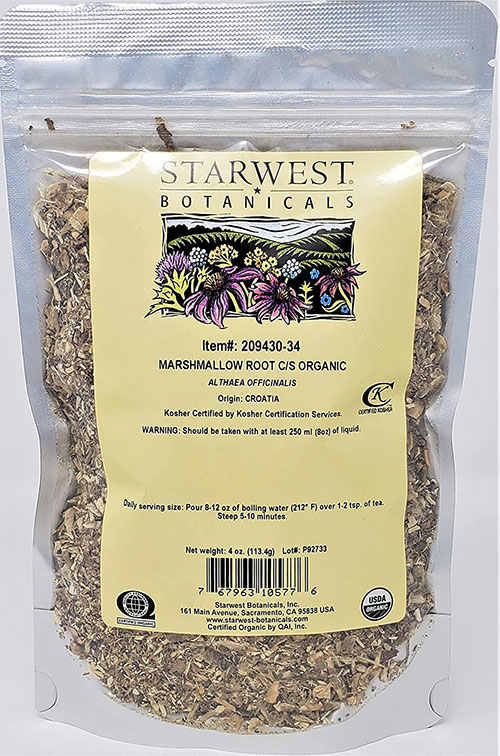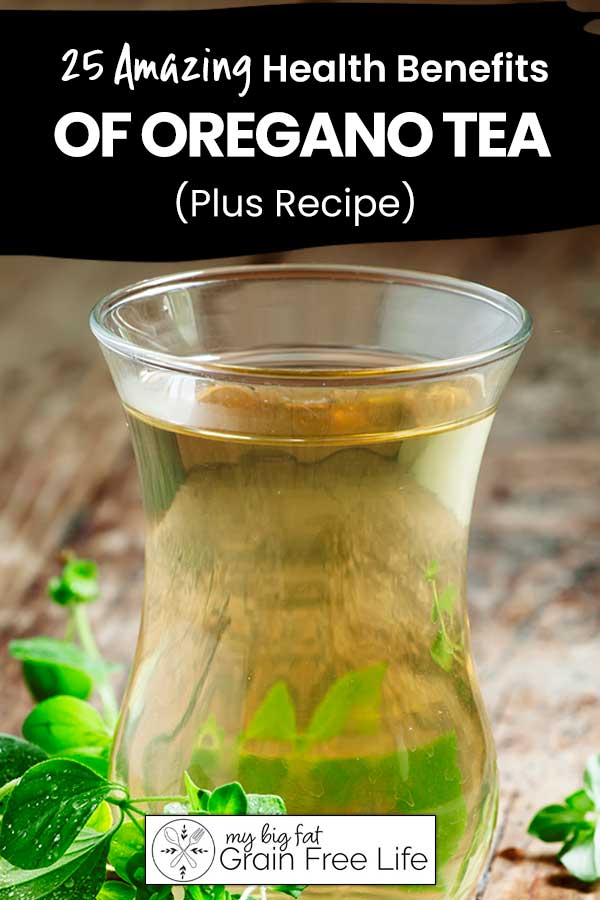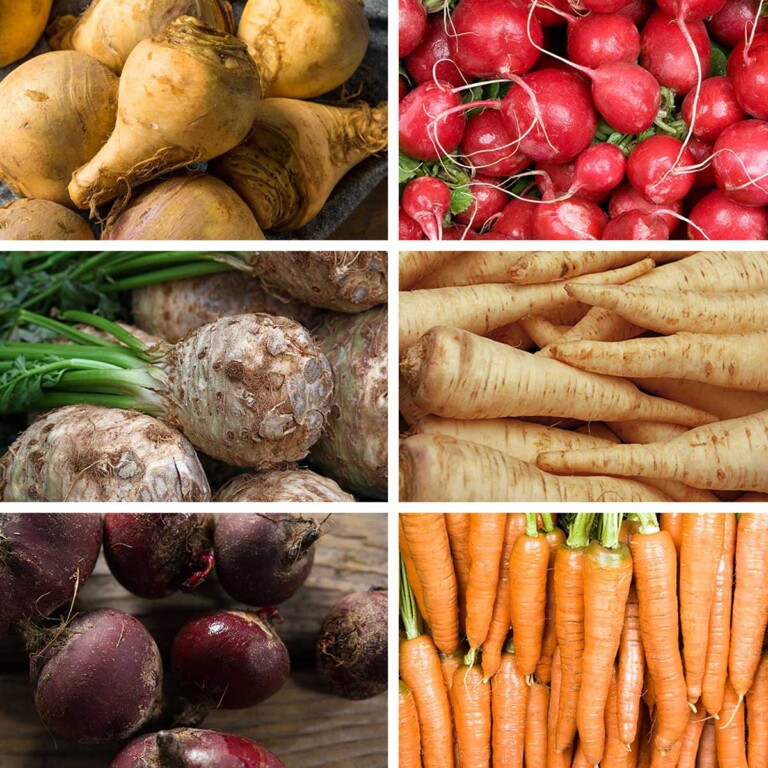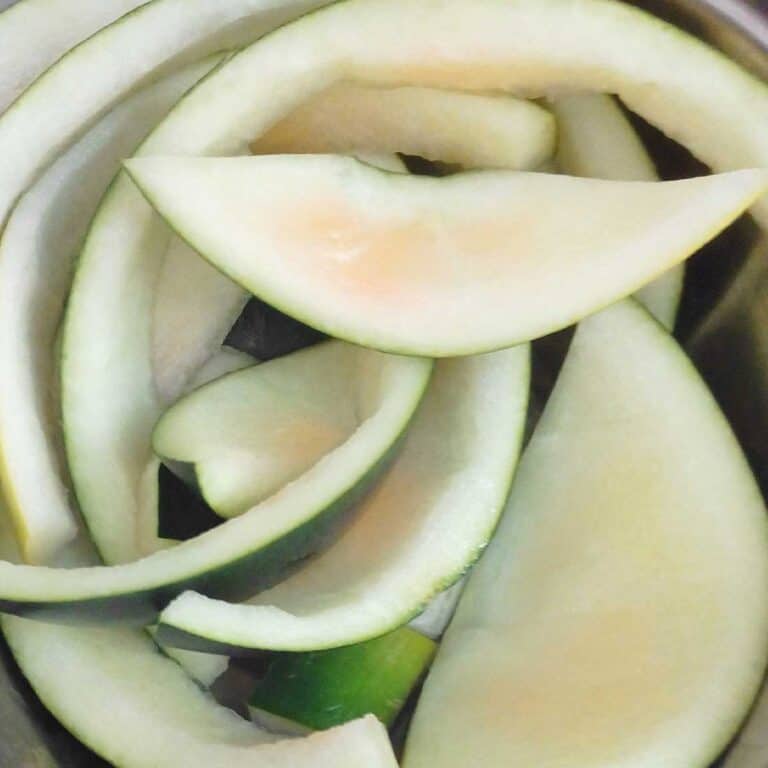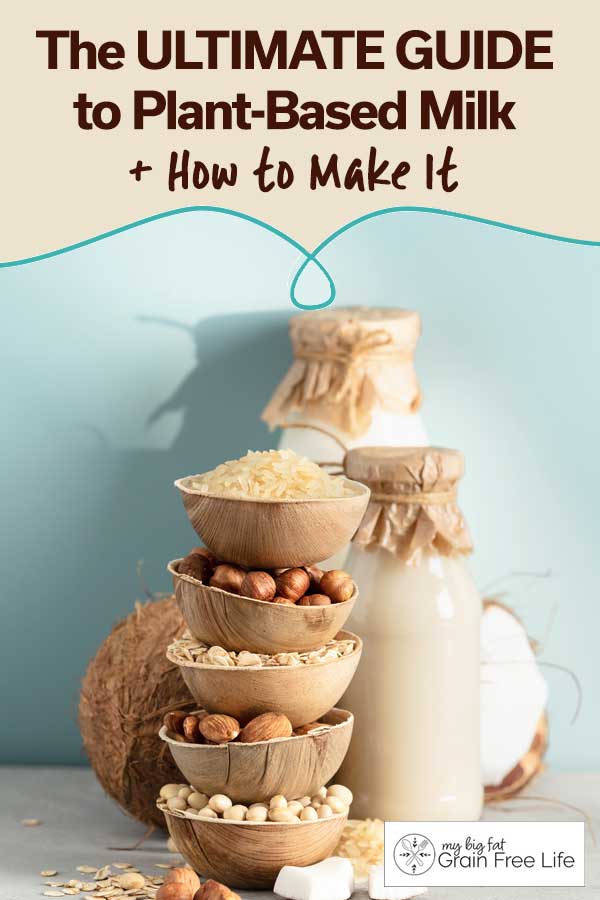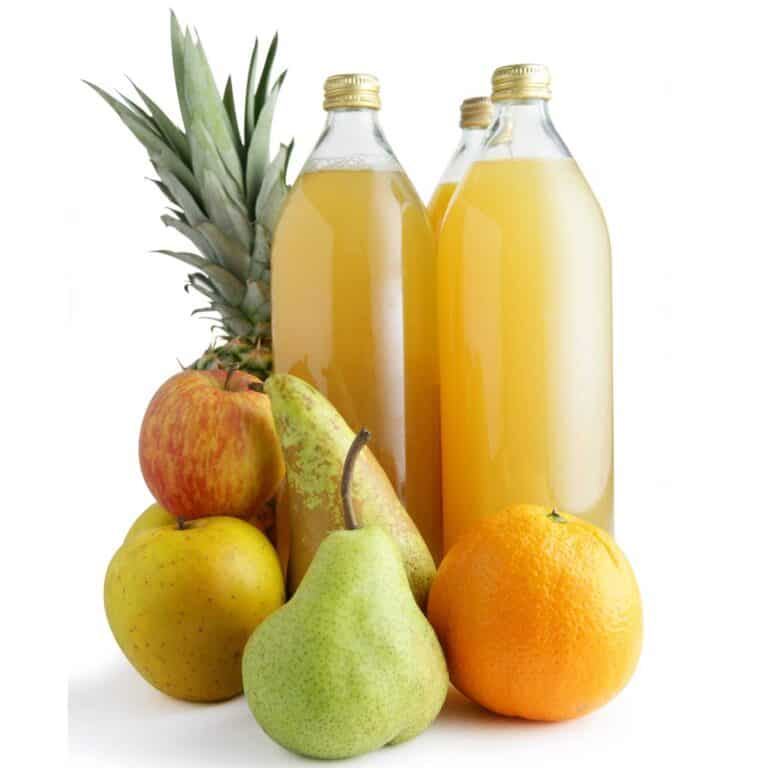Why Ginger Tea is Good for Acid Reflux (Plus 10 More Teas)
This post may contain affiliate links. If you make purchase after clicking a link, I may receive a commission at no extra cost to you.
Last Updated on June 16, 2023
There are some herbal teas that can provide relief for acid reflux. You may have heard that ginger can help acid reflux. So, is ginger tea good for acid reflux? Let’s find out!

What is Acid Reflux?
When you have acid reflux or gastroesophageal reflux disease (GERD) your stomach acid flows up into your esophagus through your lower esophageal sphincter and causes what is commonly referred to as throat burn.
Experiencing acid reflux every now and then might not be problematic, but if it happens more than twice a week, you may have GERD. Sometimes acid reflux is accompanied by heartburn, but there are many instances when you may not even realize you have acid reflux.
Acid reflux can be a chronic condition that requires you to adjust your diet using an acid & alkaline food list. Thankfully, there are some lifestyle changes you can make and natural remedies for acid reflux.
Complications with Acid Reflux
There are some complications that can form after suffering from acid reflux over a long period of time. Some conditions that can form if acid reflux is left untreated are sleep disorders, chronic coughing and throat clearning, Barrett’s esophagus, and in the most serious cases, cancer of the esophagus.
Symptoms of Acid Reflux
When I had acid reflux I didn’t know it. I had a chronic sore throat and ear pain, but didn’t realize some of my other symptoms were assocated with reflux.
Here are some symptoms that are common with acid reflux.
- bitter taste in your mouth (from stomach acid)
- excess phlegm and/or mucus
- post nasal drip
- throat clearing
- sore throat
- bad breath
- heartburn
- hoarseness
- ear pain
- coughing
- burping
- nasal congestion
Ginger for Acid Reflux
Ginger is anti-inflammatory and can be used to help improve the symptoms of acid reflux. It has also been known to help reduce the effects of gastrointestinal disorders and discomfort.
Ginger root is often used as a natural remedy for heartburn and can help relieve the effects of acid reflux. Ginger ale is often used to soothe an upset stomach, but in the case of acid reflux, you should avoid carbonated beverages.
Not only is ginger a spice, but it also makes a wonderful digestive aid and herbal tea. Matter of fact, ginger tea is great for acid reflux!
Is Ginger Tea Good for Acid Reflux?
Because of the soothing and anti-inflammatory properties of ginger root, a great way to get some relief from reflux is to sip ginger tea. Matter of fact, ginger tea is our top choice for acid reflux and one of the best teas to drink.
There are so many different types of tea, and some of them can be used to help combat acid reflux!
What Are the Benefits of Ginger?
There are many benefits of ginger. It’s important to use fresh ginger, so you need to be able to know how to tell if ginger is bad.
Ginger root contains several important minerals, vitamins (potassium, copper, manganese, magnesium and vitamin C), and compounds that make it a powerful antioxidant with amazing anti-inflammatory benefits.
It’s been used for centuries to help improve nausea, support the digestive system, provide heartburn relief, and ease gastrointestinal irritation. Ginger supplements have been used for motion sickness, morning sickness, fungal infections (such as Candida), and stomach ulcers. Ginger can also help eleviate menstrual pain and may inhibit the growth of cancer.
Since ginger can help reduce inflammation, it works great for relieving joint pain, and it also can improve cognitive function. There are even benefits of ginger root for hair!
By aiding with proper digestion, ginger can help reduce acid reflux. That’s why ginger tea is such a great herbal remedy for reflux.
How to Use Ginger to Treat Acid Reflux
You can add ginger (fresh, grated ginger or powdered ginger) to your food to absorb some of the powerful compounds that can help reduce inflammation in your throat and esophagus.
My favorite and preferred way to use ginger to treat acid reflux is by drinking ginger tea.
If you experience acid reflux, then it’s likely I don’t have to convince you that hot herbal teas are super soothing for throat burn.
What is Ginger Water?
If drinking hot tea is not your jam, then consider making some ginger water instead. It’s basically just filtered water and ginger, but you can add some stevia to it to sweeten it a bit, since stevia is the only known alkaline sweetener.
For some, raw honey isn’t problematic for acid reflux, so if that’s you, feel free to add some honey to your ginger water.
How to Make Ginger Water
What you need:
- 3 teaspoons of fresh grated ginger
- 8 c boiling water
Bring the water to a boil, add in your grated ginger, allowing it to steep for 5-10 minutes. Strain the ginger and then allow the water to cool. Store it in your refrigerator for up to 2 days.
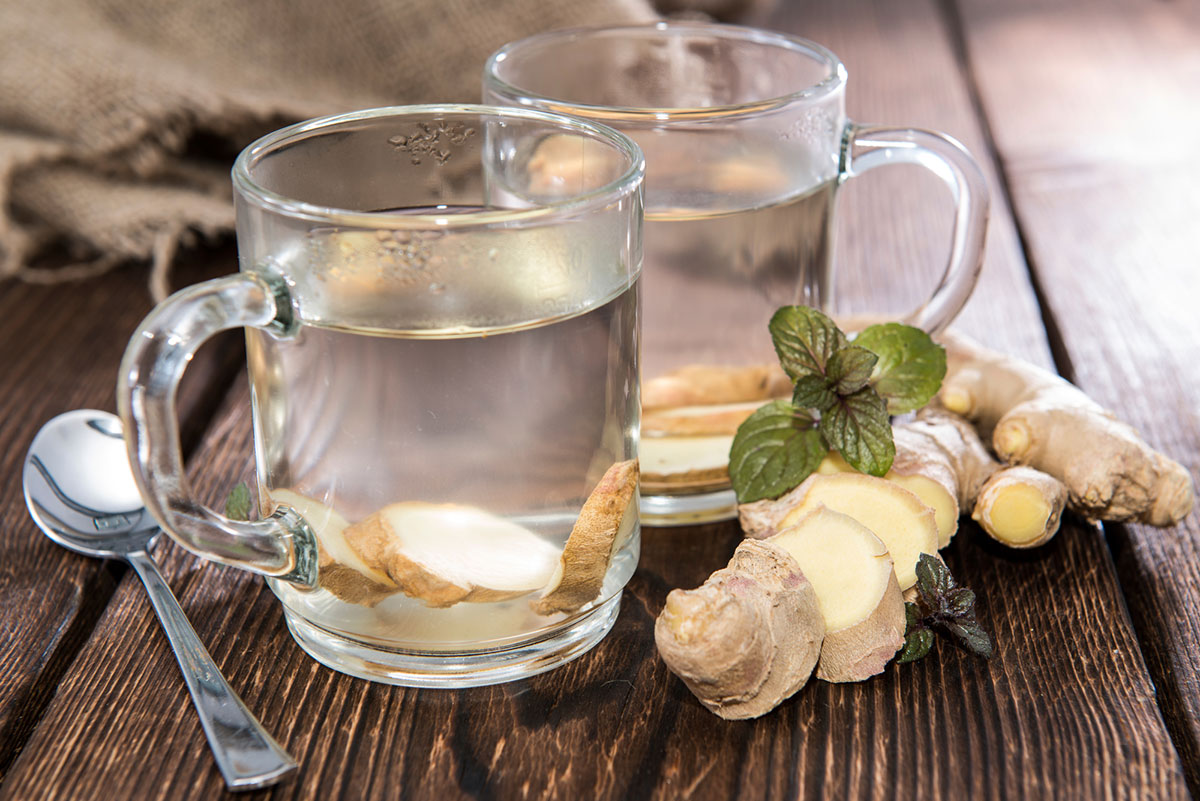
Ginger Tea for Acid Reflux
There are some herbal teas that you can enjoy – even if you have acid reflux! Among them, our top choice is ginger tea for acid reflux.
Ginger Tea
As we’ve already discovered, ginger tea is soothing for acid reflux and can provide some relief. It can be a bit spicy, so moderation is key. You can drink 1-2 cups of ginger tea every day to help your acid reflux symptoms.
Ginger tea is also a great tea for sinus congestion.
Benefits of Ginger Tea for Acid Reflux
The anti-inflammatory effects of ginger help soothe inflamed throats and provide relief for upset stomachs.
If your acid reflux is caused by gastrointestinal issues, then ginger tea may be extremely beneficial for you as it aids in digestion.
Ginger contains helpful compounds like gingerol, shogaol, paradol and zingerone. Of those, gingerol is the most beneficial for your health. Gingerol is what makes ginger a top anti-inflammatory food.
You can see why a soothing cup of ginger tea is one of the preferred home remedies for upset stomach, GERD symptoms, and overall digestive health!
The power of ginger makes it the best herbal tea to drink for digestive problems.

Side Effects of Ginger Tea
The side effects associated with ginger are minimal. If you consume too much ginger you may experience diarrhea and stomach pain.
It’s generally safe to consume 1-2 cups of ginger tea per day.
Ginger Tea
You can easily make your own ginger tea using fresh ginger root and by following the instructions below. However, if you prefer to have some ginger tea bags on hand, then this ginger tea is my preferred brand.
How to Make Ginger Tea
Making ginger tea is super-simple. All you need is hot water and fresh ginger root.
- 3 cups hot water
- 2-inches of fresh ginger root
1.) Start by washing your fresh ginger (don’t use ground ginger for ginger tea). It’s not necessary for you to peel the ginger if you have made sure it is clean.
2.) Slice the ginger into very thin pieces.
3.) Next, bring the water to a boil and then add the sliced ginger to the pot. Lower the heat to a low boil and simmer the ginger for 10-20 minutes.
4.) Strain the tea and drink it hot, or allow it to cool for ginger water. Note, this will make a stronger ginger tea than the ginger water “recipe” above.
You can add some turmeric to the tea to increase the anti-inflammatory properties, but if you do, be sure to add a pinch of black pepper to activate the turmeric.
If you can handle raw honey with your reflux, it tastes great in ginger tea. Stevia is an alkaline sweetener if you have serious reflux and cannot tolerate honey.
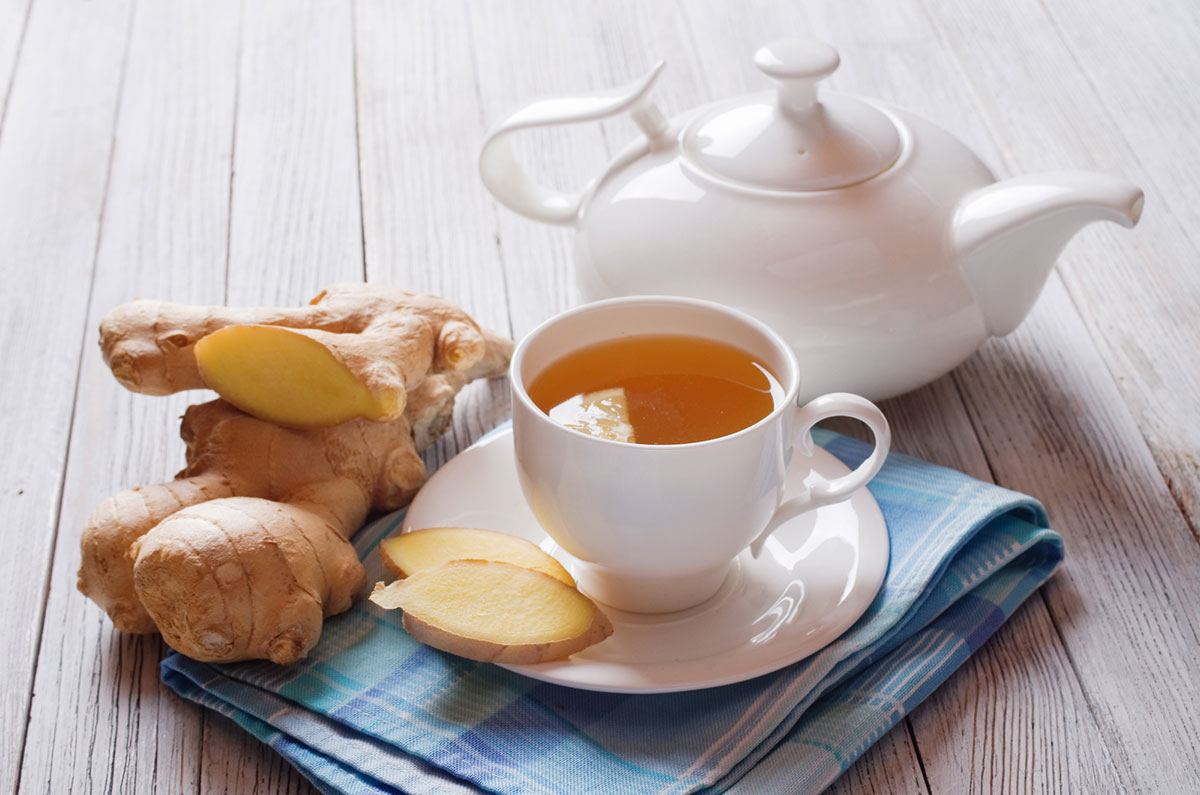
Ginger Turmeric Tea
Trader Joes makes a good ginger and turmeric tea. If you don’t have a Trader Joes near you, you this ginger turmeric tea is a great option. It has cinnamon added, which is alkaline (so not bad for acid reflux).
Herbal Teas for Acid Reflux
Herbal teas can have amazing healing properties. For instance, there are a ton of health benefits of oregano tea. Besides ginger tea for acid reflux, there are some other great herbal tea options. This allows you the opportunity to try them all and discover which tea works best for acid reflux.
There are many herbal teas that are anti-inflammatory.
Below we’ll explore some more herbal teas you can enjoy while taming your reflux. Then you can determine if ginger tea works best for your acid reflux or if perhaps another option provides better results.

Best Tea to Drink for Acid Reflux
For centuries tea drinkers have been using herbal remedies for all sorts of medical conditions.
It’s important to make good choices in regard to what you consume for any condition, so be sure to check with your healthcare provider before drinking any herbal tea.
Licorice Tea
The anti-inflammatory properties of licorice root have made it a go-to natural remedy for acid reflux, gastrointestinal disorders, heartburn, adrenal fatigue, some female issues, coughs and sore throats and more.
Licorice root should only be used in moderation, short-term. Some supplements that contain licorice can be taken more regularly because they contain such a small amount, and it has been deglycyrrhized for safety.
Benefits of Licorice Tea for Acid Reflux
Licorice tea is soothing and works as an expectorant, which can help reduce phlegm and clear your throat. A cup of hot licorice tea can even improve canker sores!
Side Effects of Licorice Tea
Any potential side effects of licorice are typically linked to glycyrrhizin. When you are taking licorice supplements, source one that has DGL licorice so you don’t have to worry about that. DGL licorice has gone through a process to remove the glycyrrhizin.
Licorice teas are soothing because of the glycyrrhizin, so you will be hard-pressed to find a licorice root tea that is made with DGL. That’s why it’s important to drink licorice tea for acid reflux on a short-term basis, with long breaks.
Licorice Root Herbal Tea
You can find licorice root tea at most healthfood stores and in many grocery stores. We recommend you choose an organic tea, like Traditional Medicinals Organic Licorice Root Herbal Tea.
Chamomile Tea
Chamomile tea is a pleasant herbal tea made from small daisy-like flowers. Chamomile is part of the Asteraceae plant family and has been used as a medicinal herb for centuries.
An important thing to remember is that chamomile can trigger ragweed allergies.
Chamomile tea may be beneficial for menstural symptoms, diabetes, osteoporosis, sleep disorders like insomnia, cancer prevention, skin conditions, and colds.
Chamomile can also help reduce inflammation, stress, and aid in reduction of digestive symptoms.
Benefits of Chamomile Tea for Acid Reflux
Because chamomile can help reduce stomach and digestive issues, it has been used to reduce the symptoms of acid reflux.
Chamomile tea is calming and relaxing and can help ease throat burn, calm your tummy, and lessen acid reflux.
Side Effects of Chamomile Tea
Chamomile may interact with blood-thinning drugs, so if you take medications, check with youyr doctor before drinking chamomile tea. It should also be avoided by folks with a tendency to develop hay fever or have severe allergies as it’s a know trigger.
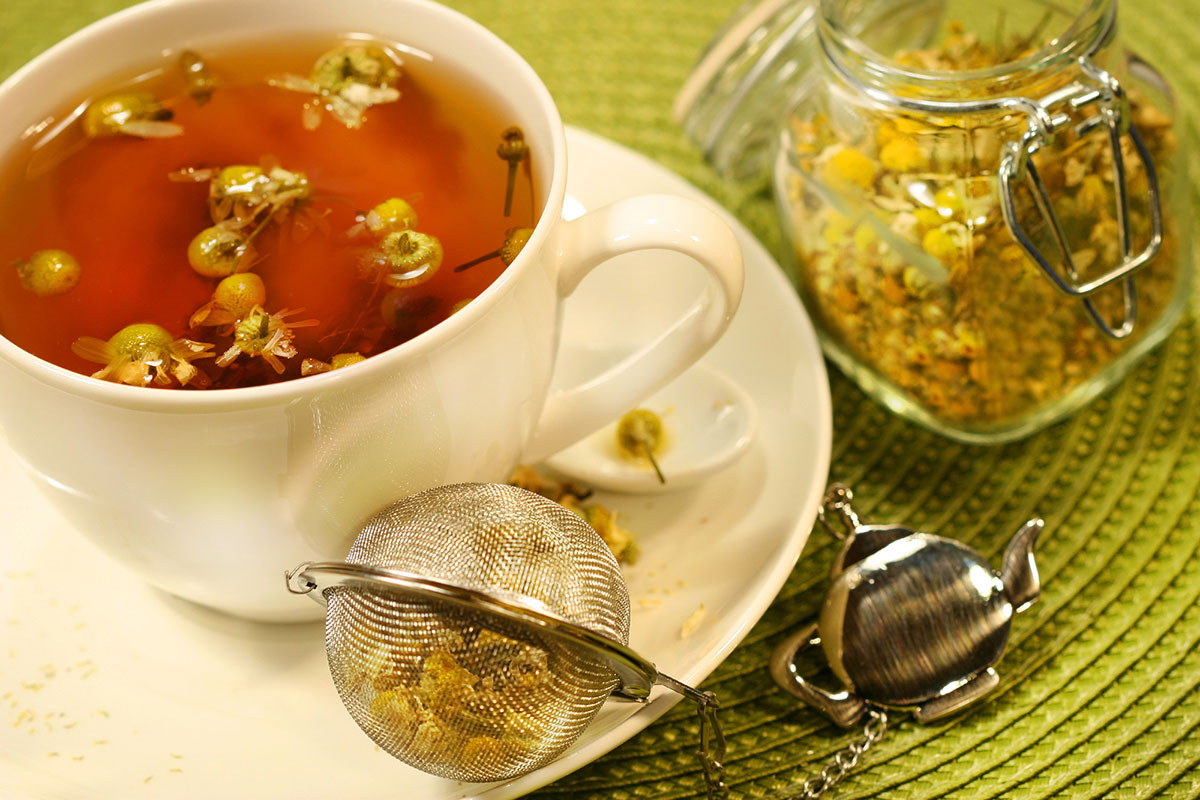
Fennel Tea
Fennel tea has a lot of known benefits and has been used as a medicinal herb for many conditions.
Drinking fennel tea may help relieve gas and bloating, aid in digestion, reduce stress, clear mucus (sometimes acid reflux can cause excess mucus), and even regulate your appetite.
It’s also known to help increase milk production when nursing (and may make your armpits smell like maple syrup!).
Benefits of Fennel Tea for Acid Reflux
Because of the fact fennel is great for improving digestion issues and reducing inflammation, it has been commonly used to fight acid reflux.
Side Effects of Fennel Tea
Fennel may react with certain medications, so be sure to check with yoru doctor before consuming it. If you are pregnant you should not drink fennel tea as it may stimulate contractions.
You shouldn’t drink fennel tea if you have a sensitivity to carrots, celery, or mugwort or when taking antibiotics.
Some people may react to fennel and experience side effects such as nausea, hives, rash, on an increase in menstural flow. These are not all the possible side effects. Consult your health care provider before drinking fennel tea for acid reflux.
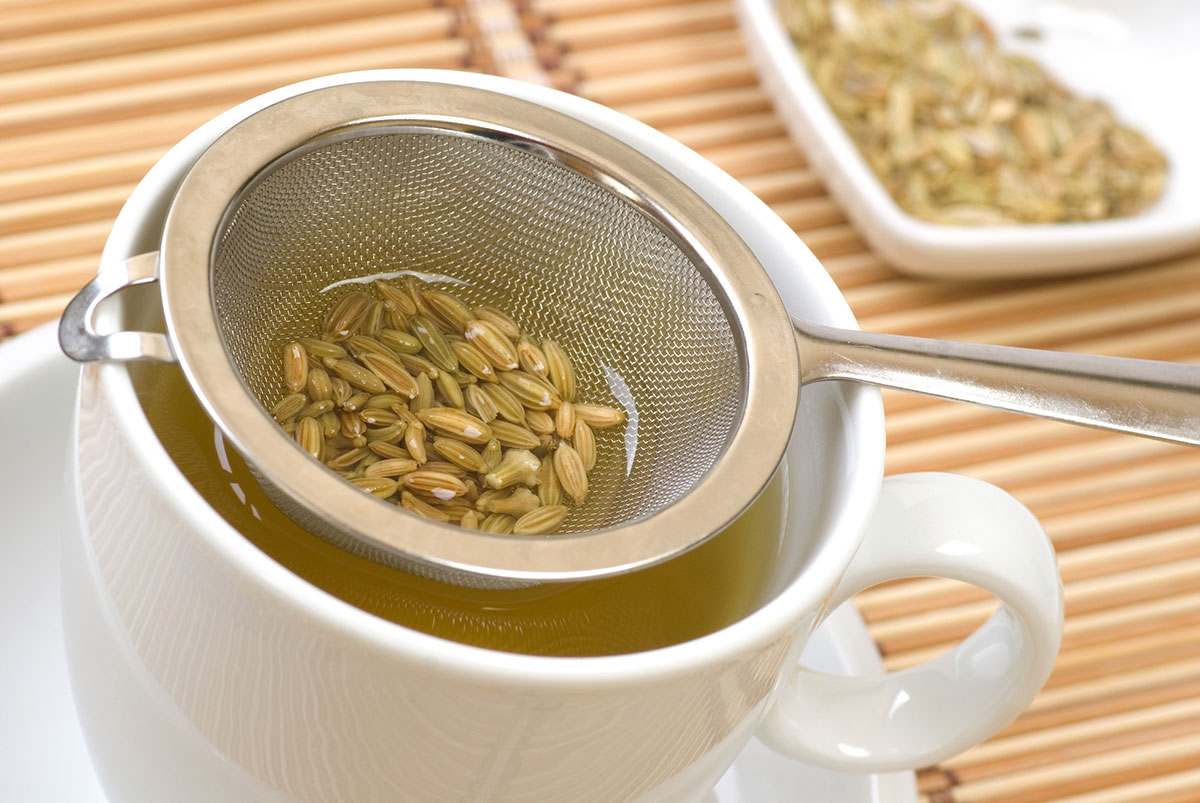
Cardamom Tea
Cardamom is closely related to turmeric and ginger, so there is no surprise that cardamom tea makes the list of good teas for acid reflux.
Cardamom is a bold spice that originally came from India. It has been used as a medicinal spice and has some great health benefits. Cardamom has a peppory mint-like flavor with some citrus notes.
To make cardamom tea you will crush the seeds and add to boiling water. During the boiling proocess the seeds release their medicinal goodness. Cardamom has been used to improve bad breath and dental issues, fight the flu, enhance circulation, and more.
Benefits of Cardamom Tea for Acid Reflux
Cardamom tea is often used as a digestive aid and prevents indigestion, bloating, and gas, all of which can conrtibute to acid reflux.
It’s no doubt that the anti-inflammatory properties of cardamom also help reduce the symptoms of acid reflux.
Side Effects of Cardamom Tea
Avoid drinking cardamom tea if you take blood thinners or blood pressure medications.
Cardamom tea may trigger allergies for people allergic to the cardamom plant. If you experience allergy symptoms after drinking this tea, such as runny nose, itchy throat, etc, stop drinking it.
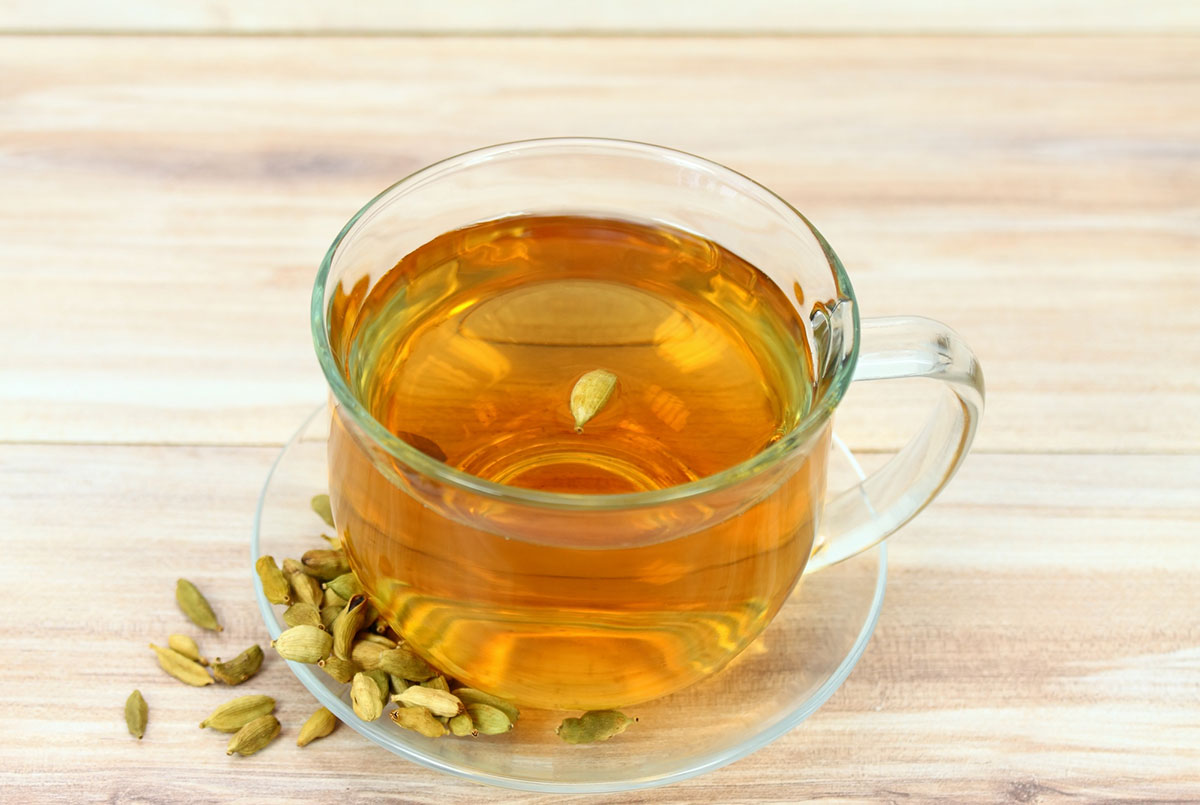
Slippery Elm Bark Tea
I have enjoyed drinking a warm cup of slippery elm tea when my acid reflux flares up. It has a thick consistency to it and coats your throat, protecting it from acid that may come up through your esophagus due to reflux.
You have to be careful what bran you buy. One time the slippery elm bark tea I purchased was not thick and it tasted like trea bark. True slippery elm bark should be thick after it has sat for a few minutes “steeping.” The taste is pleasant, somewhat reminiscent of maple syrup.
When I make slippery elm bark tea I add some almond milk or coconut milk, cinnamon, and a little bit of raw honey.
Benefits of Slippery Elm Bark Tea for Acid Reflux
Slippery elm is used to sooth Inflammatory Bowel Diseases like Crohn’s disease, ulcerative colitis, and irritable bowel syndrome (IBS).
It also works to soothe a sore throat and cough, ease symptoms from a UTI, and helps relieve heartburn and GERD.
I like to keep slippery elm lozenges on hand for when I have an acid reflux flare-up.
Side Effects of Slippery Elm Bark Tea
Check with your doctor before using slippery elm as a medical herb. It can interfere with the absorption of medications, so be sure to space it out at least an hour from taking any medicines. If you are pregnant or nursing you should not consume slippery elm.
Marshmallow Root Tea
Marshmallow root tea is smooth and a bit thick as it has a high mucilage content (which is what makes it GREAT for acid reflux!). It has as slightly sweet and nutty flavor and tastes great with a little sweetener added to it.
Marshmallow root is a perennial herb found throughout North America, Europe, and Asia. It has been used for centuries to treat digestive troubles, skin conditions, and respiratory illnesses.
Marshmallow root has been found helpful in treating coughs, skin irritations, wound healing, and as a pain reliever. It may act as an antioxidant to help protect the body from free radicals.
Benefits of Marshmallow Root Tea for Acid Reflux
Because marshmallow root aids in digestion, it has been known to relieve the symptoms of heartburn, constipation, gastric ulcers and even colic.
It also helps repair the gut lining by soothing irritation and inflammation in the digestive tract. All of these things make marshmallow root a great tea for acid reflux.
Side Effects of Marshmallow Root Tea
You can rest assured that marshmallow root is generally considered safe without side effects for most people. In some instances, an individual may be allergic to it, so if you experience any side effects, stop using it.
Turmeric Tea
I love making golden lattes! I combine freshly grated ginger and turmeric powder with almond milk and a pinch of black pepper (to activate the turmeric), and then sweeten it with a little maple syrup. If pure maple surup causes you reflux issues, you can use stevia since it’s an alkaline food.
Turmeric tea is a great tea to drink to reduce overall inflammation due to a compond called curcumin. It can soothe joint pain, boost your mood, and improve your mental clarity.
Trader Joes has a GREAT turmeric and ginger tea.
Benefits of Turmeric Tea for Acid Reflux
Because turmeric tea is helpful for gastrointestinal issues, it makes sense that it would be a great heral tea for acid reflux. The antioxidant properties and anti-inflammatory effects of turmeric tea help to reduce the symptoms of acid reflux.
Turmeric fights against acid reflux and heartburn and helps to protect the stomach lining.
How to Make Turmeric Tea
To make turmeric tea you start with a 1-inch piece of fresh tuermic. Cut it into slices and then add to a pot of 1 cup of water. Bring the water to a boil and then turn off the heat and let it sit for 4-5 minutes. Strain the tea and then drink.
Side Effects of Turmeric Tea
Turmeric can produce some side efects if it is consumed in large amounts. You may notice yellow stools or diarrhea and get a headache. It’s important to drink turmeric tea for acid reflux in moderation as some studies indicate it can decrease blood pressure increase the risk of bleeding.
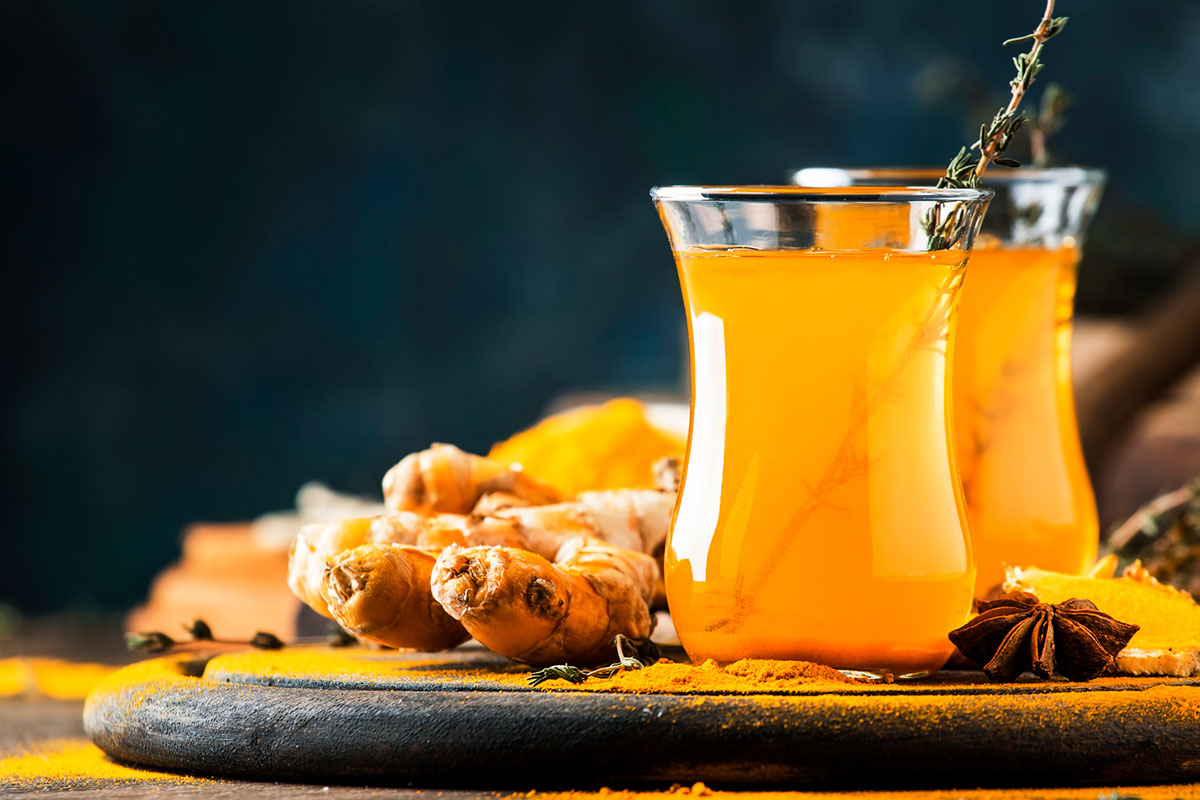
Tulsi Tea (Holy Basil)
Tulsi has been used for thousands of years for its medicinal properties. It’s also called holy basil. It’s a great souce for vitamin K and can even help relive headaches!
Tulsi tea may help reduce stress, boost the immune system, improve respiratory issues, and even support digestion. It also encourages a healthy metabolism. Tulsi acts a natural protector for tissues and organs due to phytonutrients.
Benefits of Tulsi Tea for Acid Reflux
When I was suffering through acid reflux I drank a lot of tulsi tea. I grow it in my herb garden and love the fragrant leaves. It provides a soothing feeling after experiencing throat burn.
Side Effects of Tulsi Tea
While tulsi tea is generally side-effect free for most people, in some instances individuals may experience nausea, vomiting, and indigestion if consumed over an extended period of time.

Rooibos Tea
Rooibos tea is a red herbal tea that’s chock-full of antioxidants. It’s low in tannins and caffeine free, like most herbal teas (and all herbal teas in our list).
Rooibos tea may boost cardiovascular health, reduce cancer risk, provide benefits to individuals with type 2 diabetes, and soothe the stomach lining and deigestive tract.
Rooibos contains a bioflavonoid called quercitin, which is a natural antihistamine, so it can be beneficial for allergy sufferers.
Benefits of Rooibos Tea for Acid Reflux
Roobios has an alkalizing effect, like most herbal teas. It can help to neutralize acid and in turn be a great tea for acid reflux sufferers.
Since rooibos is a natural stomach-soother and antispasmodic it has been used to help improve bloating, gas and other issues that are common when acid reflux is present.
Side Effects of Rooibos Tea
There aren’t many known side effects of drinking rooibos tea, however some studies indicate it may be estrogenic, so be sure to check with your doctor if you have meidcal conditons.
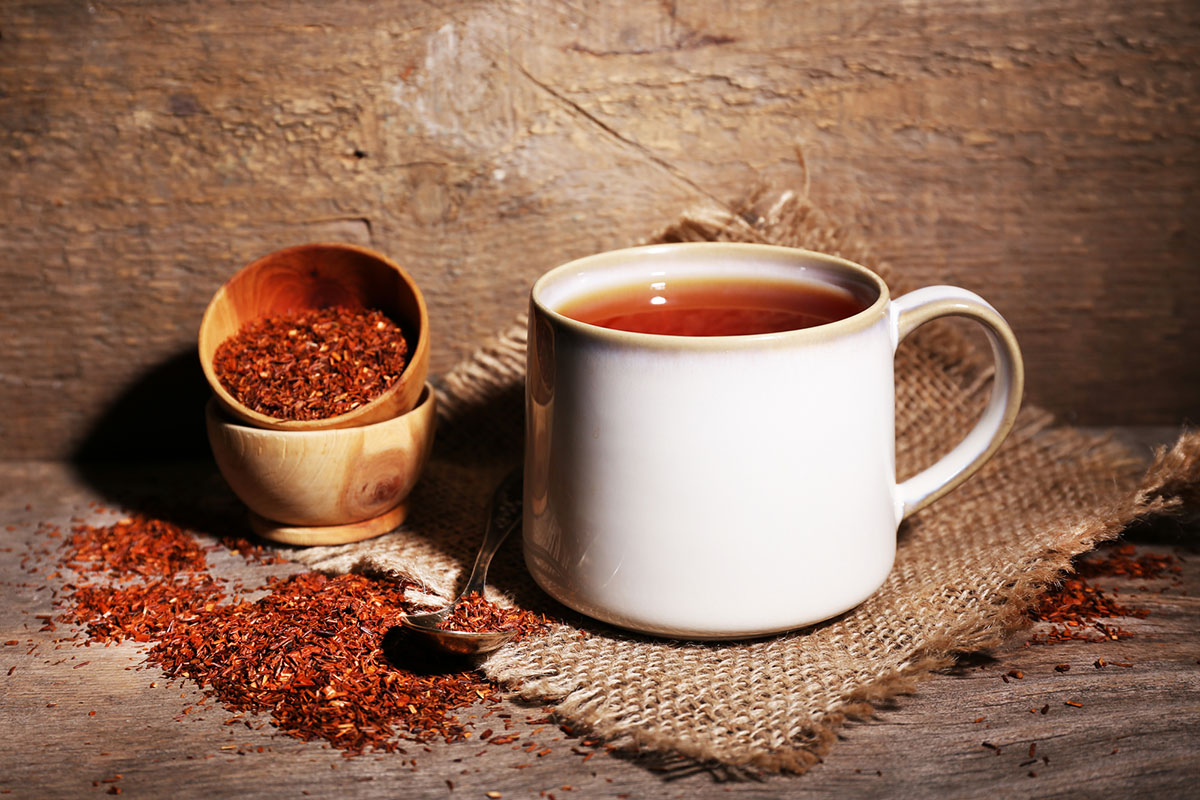
Summary: What Tea is Good for Acid Reflux?
Our top tea for acid reflux is ginger tea. There are other herbal teas that help calm acid reflux too though.
The following herbal teas are soothing with healing properties for acid reflux:
- ginger tea
- ginger turmeric tea
- licorice tea
- chamomile tea
- fennel tea
- cardamom tea
- slippery elm bark tea
- marshmallow root tea
- turmeric tea
- tulsi tea
- rooibos tea
If you have acid reflux and miss drinking coffee, learn about some ways to make coffee more alkaline.
Final Summary
If you have heartburn symptoms or overall stomach discomfort the best way to combat it is to clean up your diet by eliminating acidic foods and drinks. You can support the healing of stomach problems and acid reflux by drinking ginger tea and the other herbal teas we covered in this article.
Sources
- https://www.webmd.com/heartburn-gerd/guide/what-is-acid-reflux-disease
- https://draxe.com/health/acid-reflux-symptoms/
- https://draxe.com/nutrition/ginger-benefits/
- https://draxe.com/nutrition/licorice-root/
- https://www.medicalnewstoday.com/articles/320031
- https://www.medicalnewstoday.com/articles/319651
- https://www.rxlist.com/fennel/generic-drug.htm
- https://www.healthline.com/health/fennel-tea
- https://www.stylecraze.com/articles/benefits-of-cardamom-tea-for-skin-hair-and-health/
- https://senchateabar.com/blogs/blog/cardamom-tea-benefits
- https://www.healthline.com/health/food-nutrition/slippery-elm-bark
- https://www.healthline.com/health/food-nutrition/marshmallow-root
- https://www.teashop.com/blog/turmeric-tea-health-benefits
- https://draxe.com/recipes/turmeric-tea/
- https://draxe.com/nutrition/holy-basil-benefits/
- https://www.healthline.com/nutrition/rooibos-tea-benefits


